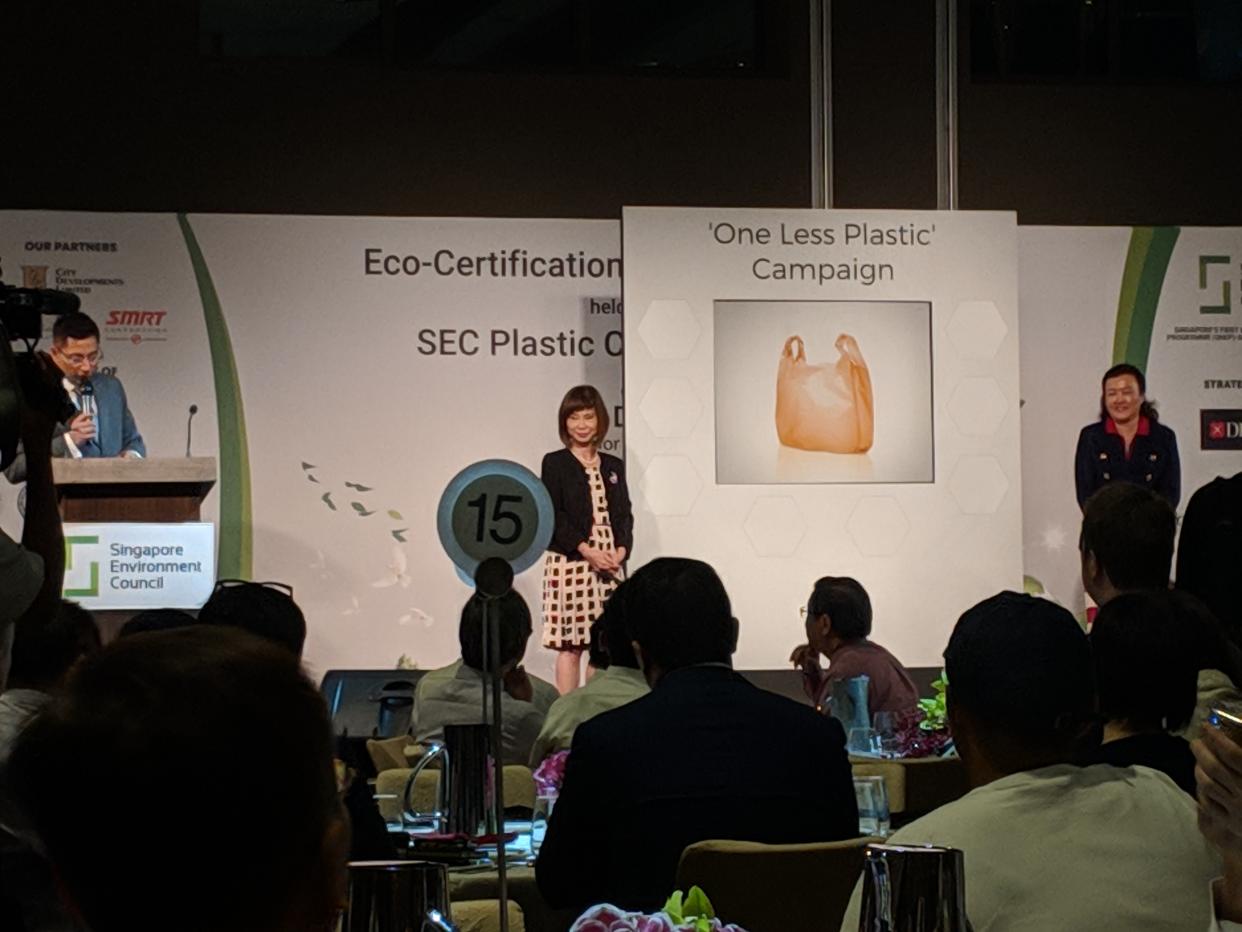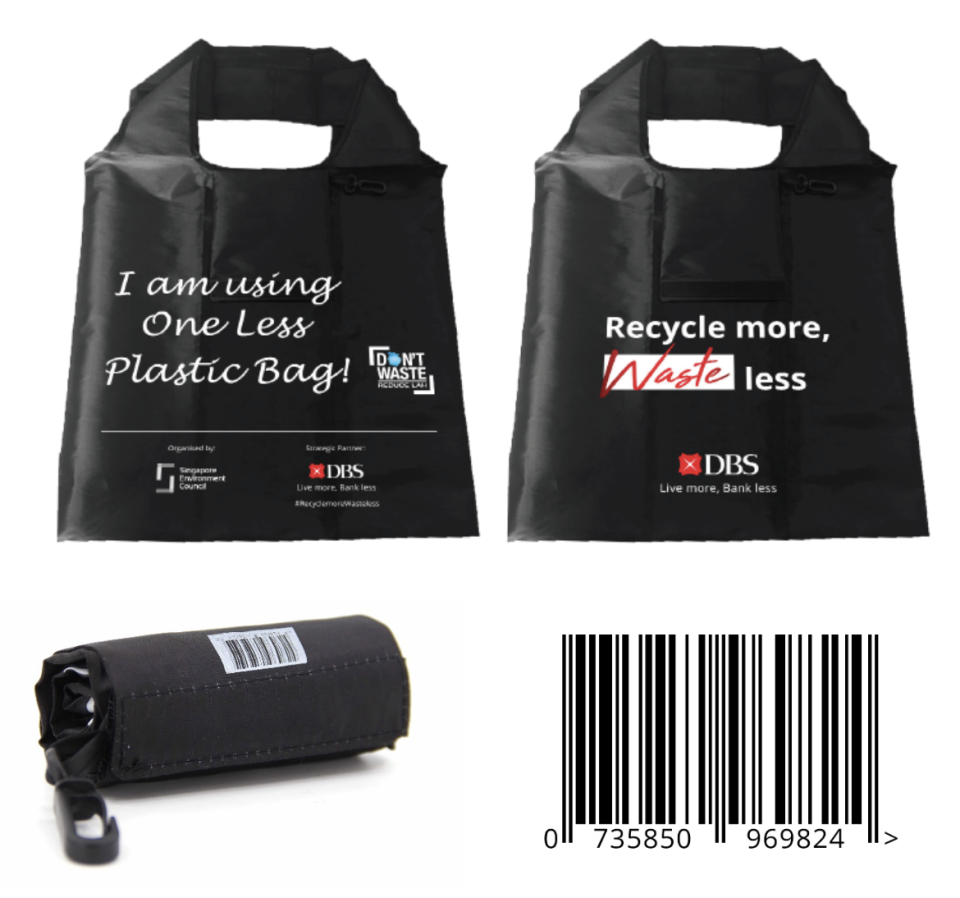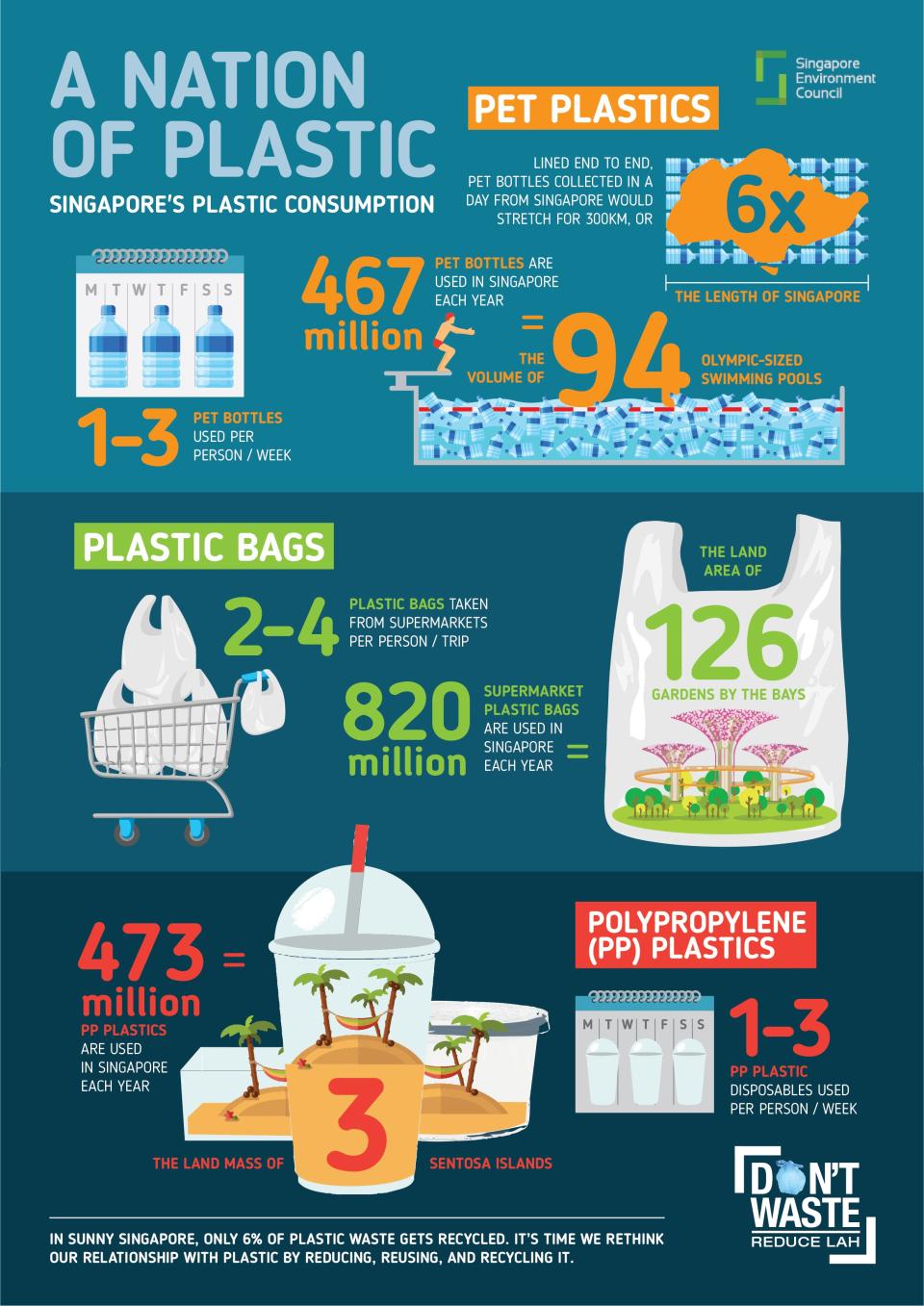4 supermarket chains in team-up with DBS, SEC to push for reusable bag usage

Four leading supermarket chains here have teamed up with the Singapore Environment Council (SEC) and DBS Bank in an effort to encourage consumers to switch from disposable plastic bags to reusable ones.
Unveiled during the SEC’s 2018 eco-certification appreciation lunch at One Farrer Hotel on Wednesday (12 December), the inaugural “One Less Plastic” campaign will involve NTUC FairPrice, Sheng Shiong, Dairy Farm Singapore Group, which runs Cold Storage and Giant, and Prime Group International, which runs Prime Supermarket and Mahota.
As part of the first phase of the campaign, 32 roadshows will be held at 16 supermarket outlets from this Saturday to 3 February next year.
Customers can redeem a reusable bag – jointly designed by the SEC and DBS Bank for the campaign – when they spend $50 or more at the participating outlets.
Forty thousand such bags will be made available during the initial phase. The bag features a clip and a barcode that, when scanned, can track the usage and behaviour patterns of shoppers.
The tracking of data and availability of reusable bags will be rolled out at all outlets under the four supermarket chains by March next year.
Data collected will allow consumers to understand their behaviour and participating supermarkets to adjust their incentive programmes accordingly, said SEC chairman Isabella Huang-Loh.

‘Very bold step’
“Now there’s a community of business owners coming in at the most impactful level – which is the supermarket retail (segment),” said Tan Yongshao, general manager of Prime Group International.
“The campaign has already taken a very bold step to be realistic (in their messaging) and to reach out to the entire industry. The consensus was never bridged before, prior to this. I think that would make the difference.”
Having “a common denominator bag” will also allow shoppers to go in and out of different supermarkets with ease, added Tan.
Sheng Shiong chief executive officer Lim Hock Chee said in Mandarin,”(Apart from this initiative), we also encourage shoppers not to double bag their groceries and combine their orders in fewer plastic bags since the latter are more durable now, compared to last time.”
‘Better to educate, persuade people’
Guest-of-Honour and Senior Minister of State for Environment and Water Resources Dr Amy Khor noted that legislation and imposing charges for plastic bags may not be the most effective or sustainable solution to reducing the use of plastic bags.
“It is better to educate and persuade people on why they should reduce their excessive use of plastic bags, so that this can be internalised and their behavioural change can be sustained over time,” added Dr Khor.
An inaugural study released in July by the SEC found that more than 2 million plastic bags are taken from supermarkets in Singapore every day.
About 14 per cent of 1,003 respondents surveyed use six or more plastic bags each time they visit a supermarket. On average, around 1 million polyethylene terephthalate (PET) bottles and around 1 million polypropylene (PP) plastic disposable items are used daily in Singapore.
Huang-Loh said the SEC will focus on PET bottles and PP plastic items following its campaign on plastic bags. It will also conduct a study on food waste next year.

Eco-friendly businesses recognised
During the event, 199 offices, shops, and food establishments were given eco-certifications by the SEC, a 13 per cent increase from last year. Out of this group, 14 organisations that had been certified for seven years or more were awarded for their contributions.
“Cumulatively, we have now certified more than 8.2 million square metres of office space and reached out to 173,000 staff and employees,” said Huang-Loh.
The SEC also announced its new environmental certification scheme called Eco-Office Plus, an enhancement that builds on its existing Eco-Office programme.
Additions to the scheme, developed after six months of consultation with government agencies and Eco-Office certified companies, include assessing an organisation’s staff engagement as well as quantifiable targets to optimise energy and water efficiency, as well as waste management.
Under Eco-Office Plus, organisations can also tap on the EcoLifeSG mobile app to track their progress and gain access to an e-concierge service for environmental inquiries. After certification, they can also participate in yearly “health checks” by the SEC that will guide companies on improving identified gaps.
Related story:
Annual supermarket plastic bag usage can fill 126 Gardens by the Bay: study


